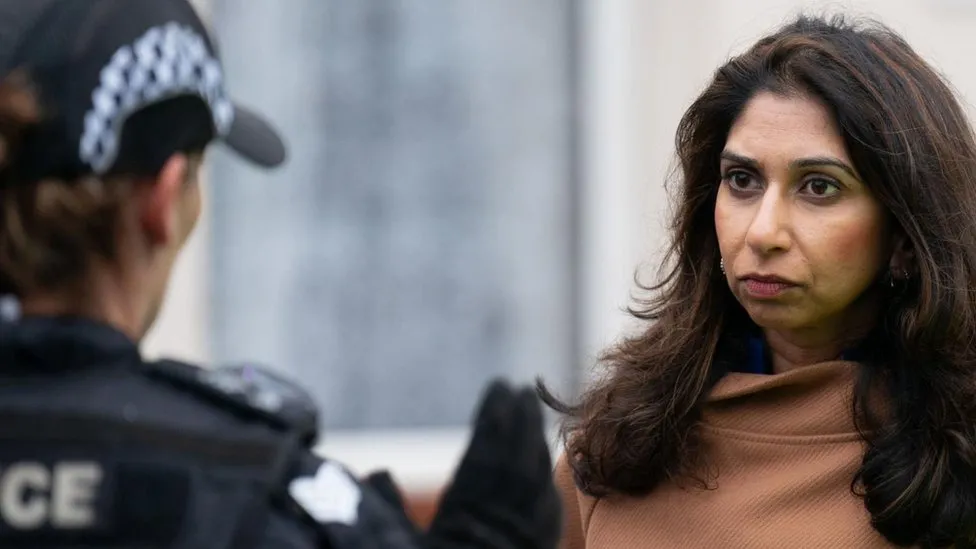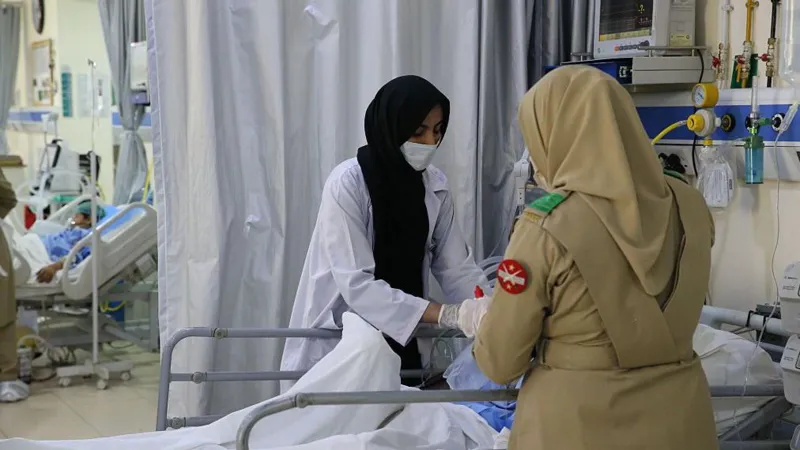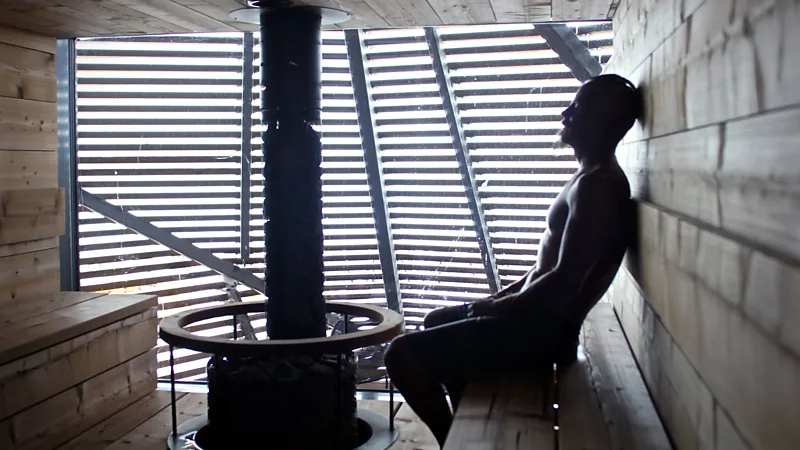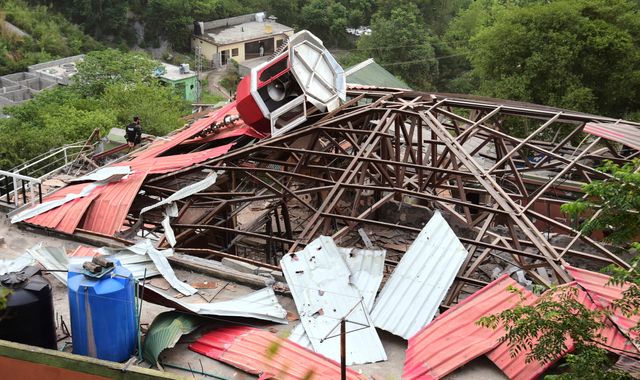Suella Braverman: PM pushed to sack home secretary over protest stance
Rishi Sunak is under pressure to sack the home secretary over an article in which she accused the police of bias.

Suella Braverman claimed aggressive right-wing protesters were "rightly met with a stern response", while "pro-Palestinian mobs" were "largely ignored".
On Thursday, No 10 said the prime minister has "full confidence in her".
The row has created a divide in the Tory party, with differing views as to whether she should keep her job.
As home secretary, Ms Braverman is responsible for the government department overseeing law and order. Laws are set through Parliament which are then independently enforced by police across the UK.
In light of her remarks the National Police Chiefs' Council (NPCC) chair has suggested policing could be undermined if "public debate" influences decision making.
Conservative MP Sir Geoffrey Clifton-Brown, who is treasurer of the influential 1922 Committee representing backbenchers, said it was "unwise" for the home secretary to write a Times article setting out her views on the protests.
Sir Geoffrey told BBC Radio 4's Today programme the prime minister will need to have a "very serious conversation" with Ms Braverman as the situation needs to be calmed down rather than "riled up".
If Ms Braverman cannot accept this, then Sir Geoffrey hinted it would be up to Mr Sunak whether to reshuffle his cabinet. "I think we cannot carry on as we are," he added.
One ally of Ms Braverman, Miriam Cates MP, disagreed with Sir Geoffrey and accused protestors of being responsible for "stirring up tensions".
Ms Cates said the home secretary has a view which is very "mainstream in the rest of the UK".
Asked if Ms Braverman should resign, Ms Cates replied: "She should be allowed to get on with her job in the way she chooses to do it."
Former Tory attorney general Dominic Grieve and current Conservative MP Sir Bob Neil both think her position is untenable.
"It is not for her publicly to attack the police in this fashion and it gives the impression she wishes to control the police decision making and that in a free and democratic society is unacceptable," Mr Grieve told BBC Newsnight.
"On the face of it she has created chaos within government."
Ms Braverman's article in the Times on Thursday was not cleared by Downing Street and it also emerged No 10's suggested changes to the text were not followed.
The Times reported on Friday that changes made at the request of No 10 included removing a warning to the police not to take a "soft touch" approach at the Armistice Day protest, along with claims there was "ample evidence" senior police officers were biased.
The paper reported further requested changes, including suggestions that she remove a comparison to marches in Northern Ireland, were rejected by Ms Braverman.
One ally of Ms Braverman told BBC Newsnight's Nick Watt that her "commitment to profound beliefs comes before calculation".
"Unless the Archbishop of Canterbury, The Guardian, the BBC and most of the commentariat are up in arms about Suella Braverman then she's not doing her job properly," he added citing a source close to the home secretary.
The Metropolitan Police has said it expects a large rally on Saturday, sparking fears of violent clashes with counter-protesters.
Saturday is also Armistice Day, the anniversary of the end of World War One, which has prompted calls from the prime minister and others for the pro-Palestine march to be cancelled, on the grounds that it is "disrespectful".
The Met Police has faced calls to ban the march - but commissioner Sir Mark Rowley said protests may only be stopped if there is a threat of serious disorder, and that the "very high threshold" has not been reached.
In her Times article, Ms Braverman claimed there was "a perception that senior officers play favourites when it comes to protesters".
Former Met Police Ch Supt Dal Babu noted the previous large-scale protests in central London in recent weeks have passed without public disorder.
He told BBC Breakfast the situation involving Ms Braverman is "very troubling". "Normally these conversations would be held behind closed doors," he said.
"The danger with the kind of language the home secretary has used - she talks about hate marches and she has been very derogatory about policing - is it will make far right groups more bold and possibly come out when there was no intention to do so.
"This is unprecedented and I hope people will use calm heads and calm voices to not to stoke up any potential disorder."
The political row comes just days before Mrs Braverman finds out whether the government's flagship Rwanda plan for migrants can go ahead.
On Wednesday the Supreme Court will decide whether to back the Court of Appeal's ruling in June that the policy is unlawful.
-bbc







